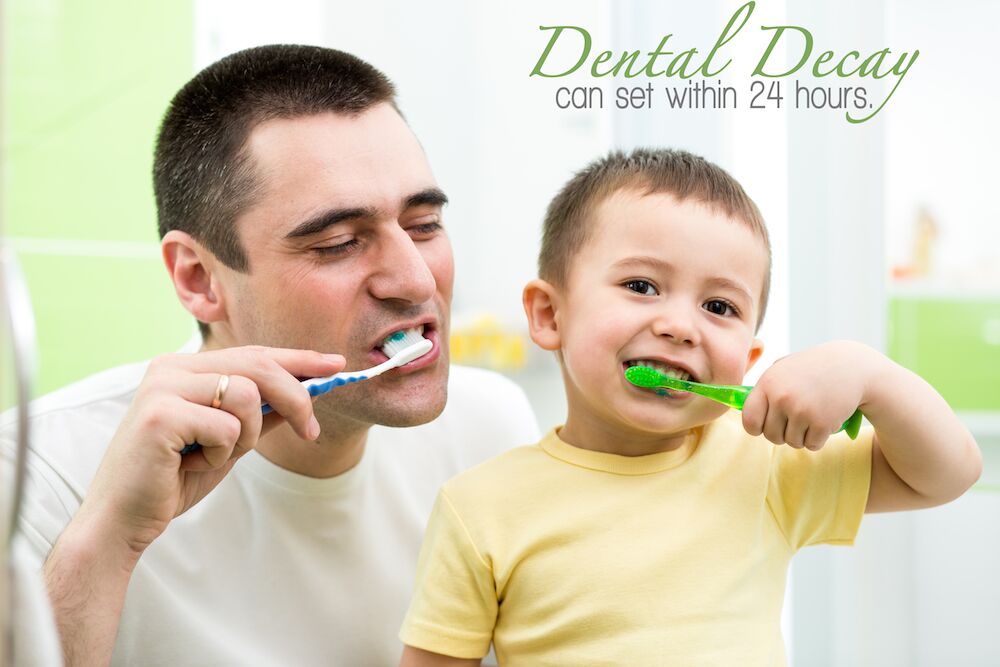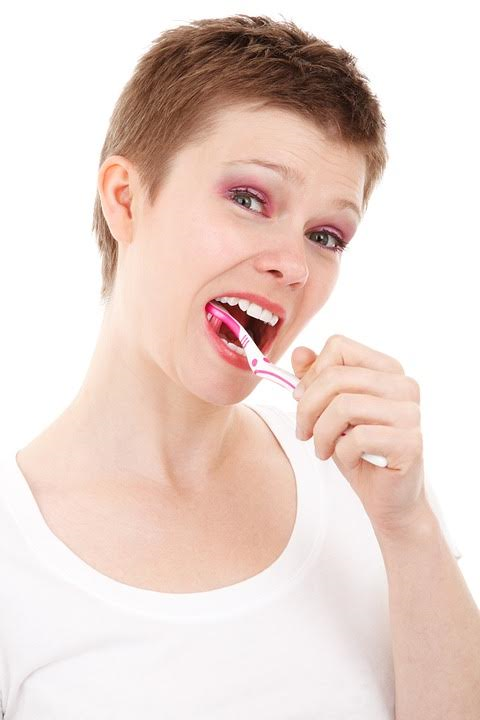Tag: Roselle Teeth Whitening Dentist
Roselle IL Dentist | Health Alert: Preventing Osteoporosis
Osteoporosis is a disease that affects roughly 10 million Americans, according to statistics from the National Osteoporosis Foundation. Additionally, another 44 million people are at an increased risk of developing the disease due to of low bone density. Symptoms appear in more than one-third of women over the age of 65. Fractures, pain, and mobility limitations can occur from osteoporosis. Understanding the signs and symptoms, as well as prevention methods, can decrease your chance of developing osteoporosis.

What is Osteoporosis?
Osteoporosis is a disease that decreases bone density and weakens bones. Many people are unaware that they have this disease, and only catch it after an injury. Bone fractures can greatly diminish your quality of life through persistent discomfort and limited mobility.
Oral Health Linked to Osteoporosis
If you suffer from osteoporosis, your oral health is also at risk. Your jawbone may begin to weaken, leading to significant oral health complications. A routine visit to our dental office can allow us to detect early signs of osteoporosis. Tooth loss and gum disease are potential indicators of an underlying health issue. Our team will take X-rays of your jawbone and surrounding teeth. If we detect diminished bone density, or signs of bone loss, we will discuss the best course of action with you.
What You Can Do
The risk factors associated with osteoporosis include genetics, calcium deficiency, smoking, menopause, excessive caffeine or alcohol, and an inactive lifestyle. Simple changes such as increasing your daily calcium and vitamin D intake, exercising, quitting smoking, decreasing consumption of caffeine and alcohol, and visiting our team regularly can help lower your risk.
Osteoporosis affects the lives of millions of people. It can significantly diminish your quality of life. Through regular oral health examinations, our Roselle dentist may be able to identify early signs of bone loss.
Schedule your visit to Westlake Dental Care of Roselle today.
Roselle IL Dentist | What to Know About E-Cigarettes and Your Oral Health
The hazards surrounding vaping are not entirely clear. More research is needed in this area, but a recent study indicates that e-cigarette vapors could be damaging to your mouth. Here’s what you need to know.

The Vapor Ingredients
Electronic cigarettes are not regulated in the same way tobacco cigarettes are, meaning that their contents can be inaccurately labeled without any oversight. Contents that e-juice usually contains include nicotine, glycerin, chemical flavoring, and propylene glycol. Some of these substances are safe in food, such as chemical flavors, but the effects of inhaling them is not well researched. Heating these chemicals can form dangerous carcinogens such as formaldehyde. E-cigarettes might also include tiny metals and particles that you inhale while smoking.
What This Means for Your Oral Health
A recent study from UCLA found that vapors from an e-cigarette can kill the cells in your oral cavity, or the area of your mouth beyond your teeth and gums. The study placed oral cells in an environment where electronic cigarette smoke was produced for 24 hours, in a machine simulating how a person would smoke. During the test, 85% of the cells died. According to the lead author of the study, they plan to move forward to test the impacts in humans.
These cells are your mouth’s defense by helping to release antioxidants. As the cells die off or become less effective, your mouth becomes more vulnerable to oral diseases.
Another study by the University of Rochester Medical Center concluded e-cigarettes are just as bad for your gums as tobacco cigarettes are. Nicotine, which both types of cigarettes contain, is a known factor in contributing to gum disease.
Steps You Can Take
Since the e-juice industry is largely unregulated, it is best to avoid smoking electronic cigarettes. The carcinogenic contents pose serious risks to your health, especially to your mouth. Your mouth relies on the functions of these important cells to defend itself against dangerous bacteria and other substances. Without your mouth’s natural defense system, you open yourself up to oral disease.
Make sure you are regularly visiting our Roselle dentist, especially if you are a smoker of either tobacco cigarettes, or electronic cigarettes. Our experienced dental team will perform a complete oral examination during your visit to check for signs of oral disease. Being proactive is your best defense against combating oral disease.
For more tips on keeping your mouth healthy or to schedule your next visit, please contact Westlake Dental Care of Roselle.
Roselle IL Dentist | Plaque: Your Teeth’s Number One Enemy
When buying a toothbrush, toothpaste, or coming in to our office, you often hear the word “plaque” associated with the health of your teeth. Plaque is one of the main reasons why it is so important to keep up with a daily oral hygiene routine that includes brushing two times each day for at least two minutes, and flossing regularly as well. Here’s what you need to know about plaque and what it can do to your smile.

What is Plaque?
If you haven’t brushed your teeth in a while, you might feel a film-like, sticky buildup on your teeth. This is plaque, a bacteria layer that grips onto your teeth. There isn’t anything you can do to stop plaque from forming, but brushing and flossing as well as keeping up with regular dental visits are your best defenses for cleaning plaque off your teeth.
What Plaque Does to Your Teeth & Mouth
Without regular brushing and cleaning, plaque builds up and multiplies. As plaque is left untreated, it hardens to form tartar (also known as calculus). Plaque also leads to decay, as it produces an acid that damages your teeth. When you come into our office for a dental examination, we thoroughly clean your teeth to ensure that any buildup is taken care of. Tartar can cause staining on your teeth if left untreated. Plaque is the leading cause of gingivitis, causing your gums to swell and become red or bloody.
What You Can Do
The most important steps of keeping plaque in check is to stick to a daily brushing routine. This means brushing twice each day, for two minutes each time, and flossing at least once daily. Plaque occurs naturally, and when you come into our office for a complete examination, we work with you to clean off any buildup. Maintaining regular visits to our office is one way to ensure tartar buildup is minimized and managed. It is particularly important that you are brushing your teeth all the way to the gum, because the gum line is an area that is prone to plaque buildup. Brush gently, as vigorous brushing will only do more damage than good, especially to your gums.
Sticking to your daily brushing and flossing routine will help keep your teeth free of plaque buildup. Make sure you are brushing in the morning and before bed. If you don’t brush before bed, bacteria and plaque will build up throughout the night. Schedule a visit to our office so our experienced, professional dental team can clean your teeth, giving you a smile you can be proud of.
For more tips from our Roselle family dentist on keeping your teeth healthy or to schedule your next visit, please contact Westlake Dental Care of Roselle.
Roselle IL Dentist | Tooth Decay – Something You Need to Know About
Painful, infected teeth are not a pleasant experience, but they are common symptoms of tooth decay. The good news however is that tooth decay is preventable. Your best defense against decay is a daily oral hygiene routine, as well as regular visits to our office. It can be helpful to know more about tooth decay and what causes it so that you are better equipped with the knowledge to prevent it.

More Than Just Sugar
Sugar is a leading cause of tooth decay. Sugar build-up and deposits on your teeth lead to the erosion of the tooth. While it is important to be mindful of the sugary products you are consuming, sugar is not the only culprit in causing tooth decay. Acids can also damage your teeth. Foods that are high in acidic content can speed up the process of decay. Our dentist suggests you avoid drinks and candies with high sugar or acid content. If you find yourself consuming such things, make sure to keep up with your daily oral hygiene routine.
The National Institute of Dental and Craniofacial Research recommends avoiding snacks between meals, limiting sugary drinks and fruit juices, and not eating or drinking before bedtime after brushing.
You Can’t Always Tell
Decay doesn’t always have noticeable signs. When discomfort is felt, it could be a sign the decay has spread beyond one tooth. In other words, by the time you do feel it decay is far along. This can be prevented by regular visits to our office. Our doctor can help identify potential issues early and you will receive the best possible treatments for your teeth.
Teeth with Fillings Still Need to Be Cared for Properly
Previous fillings do not mean that your teeth are free of decay forever. It is essential you maintain proper daily care of your teeth. It is possible to develop decay around existing fillings, so be sure you are taking extra care especially around fillings. If you feel your existing fillings are giving you trouble, schedule an appointment to see us.
Tooth Decay Not Just a Kids Thing
All age groups are equally at risk of developing tooth decay. Parents should keep an eye on their children’s sugary snacks and treats, but this advice holds true for everyone. Senior citizens are particularly vulnerable because of certain medications can damage their teeth. It is essential that all age groups are receiving twice-yearly dental examinations.
Tooth decay is a common dental issue. However, with the right knowledge you can prevent damage to your teeth. Watch your diet and make sure you limit sugary candies and snacks. Remember, you won’t always be able to see or feel decay, so contact our Roselle dentist to schedule a regular visit.
For more helpful tips on preventing decay, or to schedule an appointment, contact Westlake Dental Care of Roselle.
Roselle IL Dentist | The One Piece of Gear Every Athlete Needs

An injury to your mouth can be a painful, expensive experience. For athletes, mouth and tooth injuries are a very real risk. Mouthguards are an excellent tool for protecting your mouth from injury and harm. Our team can help you find a solution that protects your teeth while you play.
Why Wear a Mouthguard?
Mouthguards protect your teeth. For athletes, injuries to the mouth can cause cracked teeth, or even worse, missing teeth. Additionally, your mouth is mostly made up of soft tissues, such as your tongue, inside cheeks, and lips. These areas can become injured or pierced when playing sports. Mouthguards help defend your mouth and teeth against such injuries.
Do All Athletes Need a Mouthguard?
Yes. High-contact sports such as hockey, wrestling, football, and boxing pose the greatest risk for mouth injuries. However, all athletes can benefit from being cautious. Gymnasts should consider wearing one to protect their mouth in the event of a fall. Baseball and basketball players should protect themselves from being injured by a ball or collision with another player. Mouthguards should be treated as a necessary piece of your athletic gear, no matter which sport you play.
Which Mouthguard Is the Most Effective?
Our team can help you during your next visit to our office. There are many options available, ranging from store-bought to custom-fitted mouthguards. We will work with you to determine which type of mouthguard is best for you. It is important that any guard fits properly.
If you are currently receiving orthodontic treatment, we may recommend a special type of mouthguard. Braces can puncture your mouth if impacted, particularly during sports. Our Roselle dentist will help you find a solution that works.
Prevention is the best solution to oral sports injuries. Contact Westlake Dental Care of Roselle and ask about finding a mouthguard that is right for you.
Roselle IL Dentist | What to Expect from Dental Bridges
If you are missing one or more teeth, our Roselle dentist may recommend a dental bridge. To help you understand what to expect, we’ve assembled a short guide to bridges.

The Purpose of a Bridge
Tooth loss can occur due to periodontal disease, injury, extraction, and other causes. When a space is left, your remaining teeth can begin to shift, leading to changes in your bite. This may also leave your gums more susceptible to damage and disease. A dental bridge may be recommended to fill the gap left by one or more missing teeth. This device may be removable or fixed, and includes one or more replacement teeth, which are anchored to neighboring teeth for stability. A dental bridge can help keep your teeth and gums healthy, covered, and functioning properly.
What to Expect
Bridges usually require two visits. During your first visit, we will prepare the surrounding teeth and take an impression that will be used to accurately fabricate the dental bridge to fit your mouth. We may provide a temporary bridge to protect your teeth and gums from damage during the fabrication process.
During your second visit, we will fit your custom-made bridge into place. At this time, we will make any needed adjustments to ensure a proper fit and full comfort. We will also discuss a plan for future visits to ensure your bridge continues to fit properly.
Caring for Your Bridge
Keep your bridge clean and in good repair by brushing twice each day and flossing daily. If you remove your bridge for sleep, keep it in water or use a denture cleaning solution. For more information on proper bridge care, ask our team.
Bridges restore your mouth and your teeth to their normal function. If you are missing teeth, schedule an appointment with Westlake Dental Care of Roselle. We will provide an examination and determine if you are a candidate for a dental bridge.
Roselle IL Dentist | Help! 5 Tips to Know When You Can’t Brush

Occasionally you might find yourself in a situation where you won’t be able to brush your teeth, perhaps through a lack of time or your location. Though it is vital to brush twice each day, here are a few steps you can take if you find yourself in a bind.
Drink Water
When you are in a spot where you won’t be able to brush your teeth for a while, water can be your friend. Drink water to help wash away sugars and acids that are in your mouth and on your teeth. Much of the public water supply is also fluorinated, meaning it contains fluoride. Fluoride helps to build strong teeth. Water also helps your mouth produce more saliva, which works to keep enamel strong. Our doctor suggests drinking water regularly, not just when you can’t brush your teeth.
Chew Sugar-Free Gum
Try chewing some gum to help keep your teeth clean. The American Dental Association (ADA) approves certain chewing gum brands with their seal on the package. ADA approved gums are sugar-free and do not contain other decay causing sweeteners. Like drinking water, chewing gum is good for saliva production, which helps to strengthen tooth enamel.
Floss Your Teeth
We suggest always carrying dental floss; it’s usually small enough to fit almost anywhere. Flossing is not a replacement for brushing, just as brushing does not replace the need for flossing, however in a pinch it is essential that you remove any plaque and build up that you can. The ADA suggests flossing once a day. Flossing will help improve your gum health too.
Use a Disposable Toothbrush
If you know you might be out of the house for a while, perhaps because of a long day at work or an overnight stay, we recommend you consider a disposable toothbrush. Disposable brushes usually come with toothpaste already applied and are easy to store and carry. They are an excellent alternative that allow you to still thoroughly clean your teeth.
Avoid Sugary Foods
A helpful step you can take if you find yourself in a situation where brushing isn’t possible is to avoid eating or drinking sugary or acidic things. Acids and sugars are what contribute to decay, as they weaken your teeth’s enamel. If you cannot brush your teeth, then don’t eat foods that lead to decay. Avoid sugary soft drinks, juices, sports drinks, and energy drinks as these drinks will leave behind sugars and acids that sit on your teeth.
Keep a Routine
Your oral health depends on your ability to brush your teeth twice-daily. Sometimes however, you might find yourself in a situation where that’s not an option. Our Roselle dentist suggest following these steps to minimize the damage to your teeth.
For more helpful tips from our Roselle family dentist on keeping your smile healthy, contact Westlake Dental Care of Roselle.
Roselle IL Dentist | 7 Ways to Combat Bad Breath

Halitosis, commonly known as bad breath, is commonly associated with certain foods. Garlic, onion, and cabbage can all cause a foul odor and taste for several hours after you’ve eaten them. This type of temporary halitosis is easily solved by avoiding the foods that cause it. However, in some cases bad breath is a chronic problem that simply changing your diet won’t solve.
Long-term bad breath is caused by the presence of bacteria in your mouth. These bacteria are most often found on the back of the tongue and thrive when your mouth is dry. There are a variety of ways you can help reduce or eliminate chronic bad breath. Some of these include:
Practice good oral hygiene.
Brush your teeth after you eat as often as possible and at least twice daily. Clean between your teeth using dental floss or another interdental (between teeth) cleaner at least once each day. Food particles between teeth will break down slowly and cause unpleasant odors and tastes.
Brush your tongue.
Even if you brush and floss your teeth as recommended, the bacteria causing your bad breath may remain on your tongue. Use a tongue scraper or toothbrush to gently scrape away any particles of food or bacteria every time you brush. For best results, place the scraper or brush as far back as you can manage without gagging. This will generally become easier over time.
Keep well-hydrated.
Dry mouths allow bacteria to thrive. By drinking plenty of water, you can help prevent the bacteria growth and reduce or stop bad breath.
Avoid bad breath triggers.
Onions, garlic, cabbage, coffee, and tobacco products are all known to cause bad breath.
Chew sugarless gum.
By chewing sugarless gum, you increase saliva production and keep your mouth moist. This helps slow or prevent bacteria growth, minimizing chances of bad breath.
Improve your diet.
Crunchy fruits and vegetables, yogurt, and foods rich in vitamins C and D all work to prevent the growth of bacteria, keep your mouth cleaner, and increase saliva flow.
See your dentist.
Follow your regular schedule of dental hygiene appointments and exams. If you have tried the tips above without improvement, make an appointment for an exam to see if there may be an underlying condition that requires treatment. Treat any oral illnesses, such as decayed teeth, periodontal (gum) disease, or infection.
For more information about the potential causes and treatments for halitosis, contact Westlake Dental Care of Roselle.
Roselle IL Dentist | Are Your Drinks Attacking Your Teeth?

If carbonated soft drinks are part of your normal daily routine, you may be causing serious damage to your teeth. Recent studies have found soft drinks to be among the most potent dietary causes of tooth decay. Soft drinks have also been implicated in increases of obesity, type 2 diabetes, and other serious health conditions. Before you shop for beverages this week, consider a few things you should know about soft drinks.
Most soft drinks contain substantial amounts of sugars, which interact with the bacteria in your mouth. This interaction produces a form of acid that can damage your teeth for about 20 minutes. Each time you take a drink, you reset that time window. If you consume throughout the day, you are essentially bathing your teeth in that beverage for hours.
Most soft drinks contain acids, as well. Even sugar-free varieties contain acids that can weaken the enamel on your teeth. Colas and citrus-flavored soft drinks tend to have the highest levels of acid. Over time, this weakening of tooth enamel has a cumulative effect. This can lead to decay and even tooth loss if not addressed in early stages.
Obviously, the best solution is to stop consuming carbonated soft drinks. However, it can be a difficult habit to break. Here are some tips to help reduce your risks of tooth damage from these beverages:
- Drink in moderation. Too much sugar and acid will eventually cause damage.
- Try sparkling water. This provides the fizzy sensation without all the sugar and acid.
- Drink more water. You will crave soft drinks less when you are fully hydrated.
- Don’t sip. The longer you spend drinking, the more time sugars and acids are reacting with your teeth.
- Use a straw. This can help keep the sugars and acids away from your teeth.
- Rinse with water after drinking to dilute acids and sugars.
- Don’t brush immediately. Wait at least 30 minutes for acids to be neutralized by saliva before brushing.
- Practice good dental hygiene, including brushing, flossing, and regular professional cleanings and exams.
Carbonated soft drinks can be harmful to your oral and overall health. Be mindful of how often you consume them and consider reducing or stopping your use of these dangerous beverages.
For more oral health tips or to schedule an appointment, contact Westlake Dental Care of Roselle.
Roselle IL Dentist | The Truth Behind “Natural Whitening” Fads

It seems like there is a new headline nearly every week featuring someone who swears their teeth are whiter and brighter due to their natural home remedy for stain removal. These articles showcase the idea that whitening can be cheap and easy, if in some cases unpleasant. It can be tempting to consider trying for brighter, whiter teeth without investing time and money on in-office or at-home whitening under a dentist’s care. However, before you pin your hopes on one of these “natural whitening” methods, take a look at the truth behind some of the recent fads.
Fad 1: Oil Pulling
Oil pulling has been cropping up in headlines for months with claims of a wide variety of potential health benefits. It is a very old folk remedy in which a person swishes a tablespoon of edible oil, such as coconut, sunflower, olive, etc., in their mouth and between teeth for up to 20 minutes daily.
Despite the number of years this practice has existed and the number of health issues it purports to treat, there is no evidence that oil pulling whitens teeth or improves health.
Fad 2: Fruits
Due to celebrity endorsement, some people have begun to try rubbing mashed strawberries on their teeth to try to achieve a whiter smile. Others are using lemon or orange peels, and still others tout the virtues of eating pineapple or swishing apple cider vinegar.
However, there is no science to support any of these claims. In fact, one recent study found that brushing with a mixture of baking soda (which is known to have whitening effects on teeth) and strawberries did not whiten teeth. Even worse, the citric acids found in all of these fruits and vinegars can actually be harmful to the enamel on your teeth.
Fad 3: Hydrogen Peroxide
While it is true that many forms of in-office and over-the-counter teeth whitening make use of hydrogen peroxide, there is more to consider before opening a bottle. The hydrogen peroxide used in professional teeth whitening, whether in-office or at-home, is mixed with other substances and provided in a form designed for use in teeth whitening.
Simply swishing from a bottle of hydrogen peroxide will have little or no effect on the whiteness of your teeth, but may cause irritation to your gums and mouth and can be dangerous if accidentally ingested.
If you want whiter, brighter teeth, there are safe and effective ways to achieve your goal. Talk with our doctor for a recommendation for what kind of whitening will be best for your needs. For more information about whitening, contact our office.

